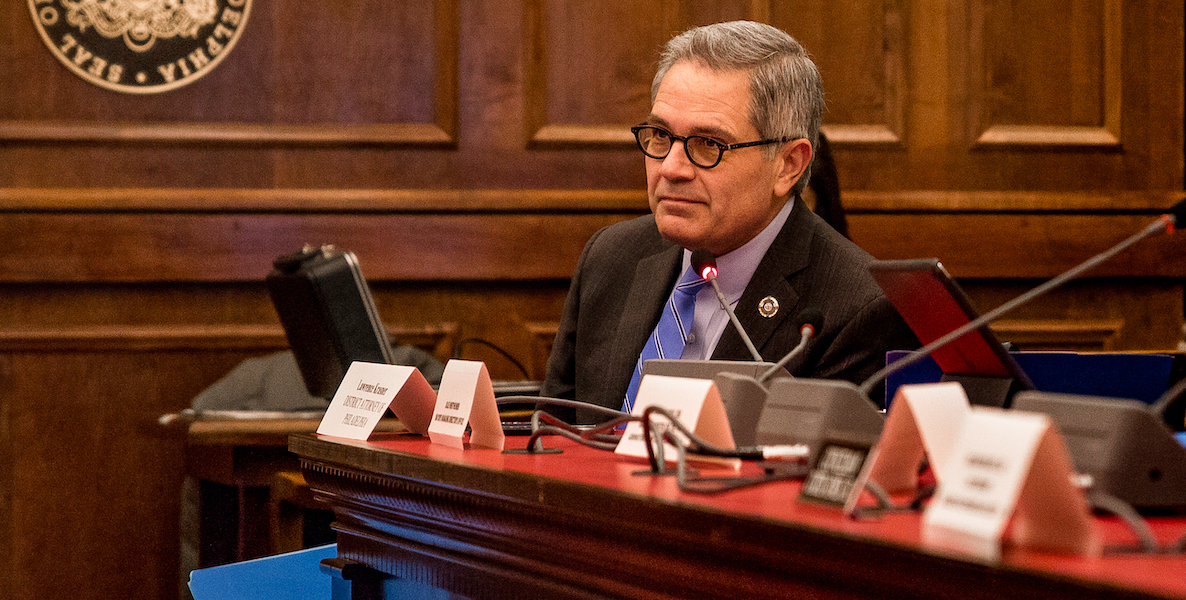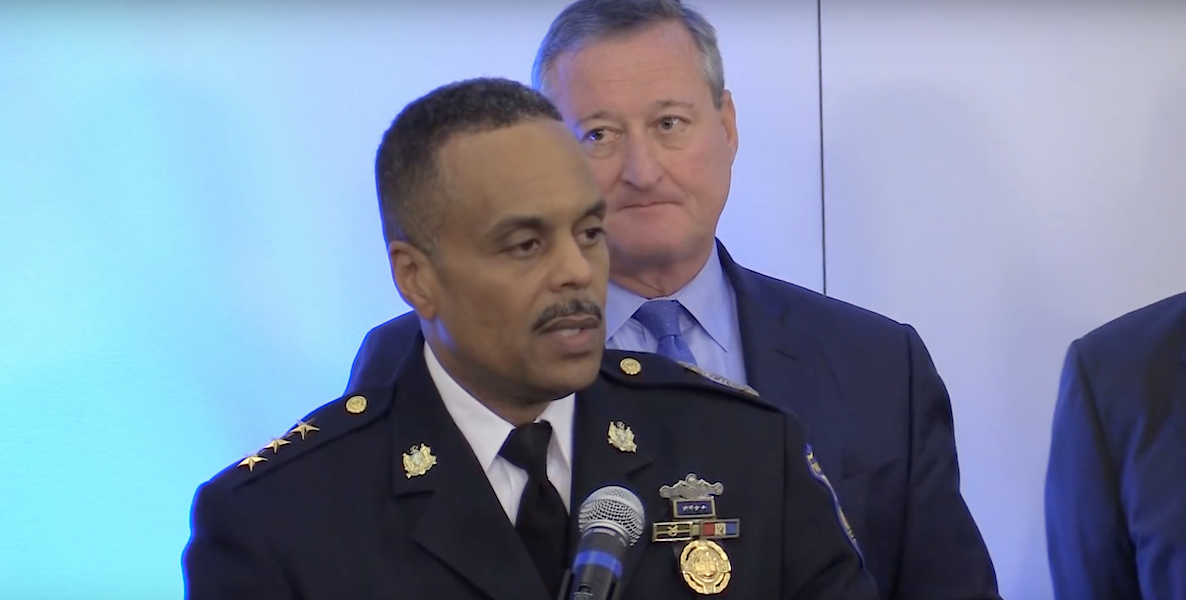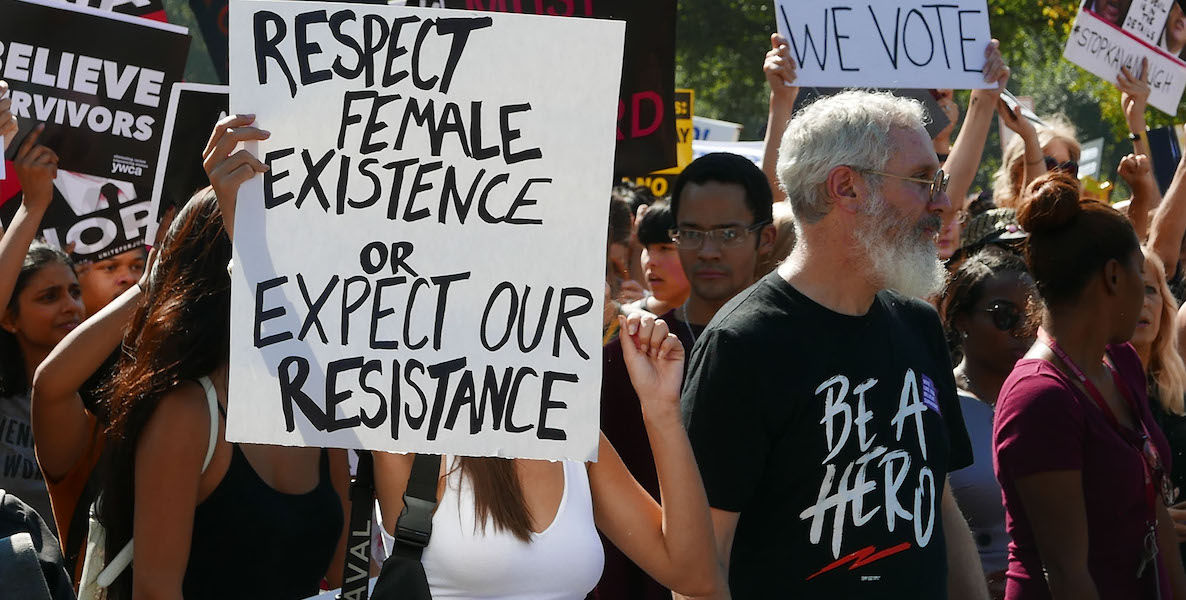To hear Mayor Jim Kenney tell it yesterday, though he reluctantly accepted the resignation of Richard Ross, his police commissioner had been doing a “stellar job.” There was, of course, Ross’s handling of last week’s Nicetown shooting standoff, during which Ross’s restraint was rightfully praised, leading Kenney to dub him the best commissioner in the nation. And Kenney—oddly—saw fit to single out as Ross’s valedictory accomplishments yesterday the peaceful handling of the Democratic National Convention, NFL Draft, and the Eagles parade, as well as Ross’s willingness “to fire officers that did misdeeds.”

Prefer the audio version of this story? Listen to this article in CitizenCast below:

Not mentioned, of course, was the city’s exploding homicide rate—up some 30 percent under Kenney and Ross, while peer cities nationwide have seen declining rates—or the city’s abysmal “clearance rate” of 40 percent, which means that, in 6 out of 10 cases, you can literally get away with murder in Jim Kenney’s city. That makes for a less impressive report card than Kenney would lead us to believe, no?
![]() “It’s a hard job, a stressful job,” Kenney said of being police commissioner. No question that’s right—but read through the lawsuit filed by two African-American female cops, which details the most crudely atavistic type of sexual harassment, including serial butt-grabbing and clever, unwanted lines like, “You’re giving me action in my pants.” If half of the allegations in the complaint are true, a Mad Men-era culture was permitted to flourish under Ross that can only lead one to wonder: In a city with an exploding murder rate, don’t these smooth operators have anything better to do with their time than make “jokes” about a Black female officer’s breast milk? Ironic that Kenney heroically cites Ross’s job for its degree of difficulty, because reading these allegations and those of Detective Lisa Salvo, who documents PPD’s “grossly sexist culture,” it turns out that the most stressful job in Philly might just be being a female cop.
“It’s a hard job, a stressful job,” Kenney said of being police commissioner. No question that’s right—but read through the lawsuit filed by two African-American female cops, which details the most crudely atavistic type of sexual harassment, including serial butt-grabbing and clever, unwanted lines like, “You’re giving me action in my pants.” If half of the allegations in the complaint are true, a Mad Men-era culture was permitted to flourish under Ross that can only lead one to wonder: In a city with an exploding murder rate, don’t these smooth operators have anything better to do with their time than make “jokes” about a Black female officer’s breast milk? Ironic that Kenney heroically cites Ross’s job for its degree of difficulty, because reading these allegations and those of Detective Lisa Salvo, who documents PPD’s “grossly sexist culture,” it turns out that the most stressful job in Philly might just be being a female cop.
Of course, Kenney wouldn’t comment on the specifics of the lawsuit, emphasizing again and again that it consists of mere allegations. Fair enough. But what was missing from Kenney’s commentary is what the sum total of department missteps under Ross inevitably leads to: that the Philadelphia Police Department, in addition to coming up short in fighting gun violence, is in desperate need of widespread culture change, particularly when it comes to race and gender.
Let’s look at the record. First, you can’t disregard Ross’s initial tone-deafness when two African-American men were arrested for drinking coffee while black in a Rittenhouse Square Starbucks. Ross’s response was to back his cops—until public outcry (and cell phone video!) influenced public opinion. Then came the racist ramblings on Facebook of some 300 officers —including a high percentage of captains and lieutenants. Yes, Ross sought to fire 13 offenders. But what role did he play in allowing a corrosive culture to take hold? What had he done to change things, particularly among those he had put in positions of power?
Which gets us to that “grossly sexist culture.” Remember that the city spent $200,000 to settle sexual harassment and civil rights violation lawsuits against Inspector Anthony Washington—who, amazingly, was promptly given oversight of the Special Victims Unit. Ross vociferously defended Washington, despite accusations of sexual harassment by four female cops and, incredibly, a Temple University student who tried to interview the dude for a school project.
Media reports since Ross’s fall from grace have zeroed in on the allegation that he pledged to subvert one of the women’s claims, owing to his past relationship with her. That’s newsworthy, I guess, but bigger questions loom, particularly around culture. Turns out, police departments across the country are wrestling with similar clashes—in a way that, like here, trails society at large.
“The research shows that the shape of sexual harassment in policing is quite a bit about banter,” says Dr. Cara Rabe-Hemp, professor in the Department of Criminal Justice Sciences at Illinois State University and author of Thriving in an All-Boys Club: Female Police and Their Fight for Equality. “It meets the legal qualification for harassment, but it is so common that three things happen. One, those who engage in it don’t even see it as sexual harassment, because it’s not seen as the egregious type. Two, it becomes normalized. And, three, when women do report it, they face retaliation. That’s the tricky part for me. From the perspective of a scholar, do you encourage women to report, knowing they’re likely to face retaliation?”
Reading these allegations and those of Detective Lisa Salvo, who documents PPD’s “grossly sexist culture,” it turns out that the most stressful job in Philly might just be being a female cop.
When Ross allegedly responds to a female officer telling him of a male colleague who is repeatedly sexually harassing her by saying, “So why don’t you just order his dumb ass to go sit down and get out of your face?,” is there any doubt that he’s, to borrow Rabe-Hemp’s verbiage, normalizing? Likewise, isn’t that also what Kenney is up to, when, in his press conference yesterday, he responds to a question about sexual harassment by saying you can “follow this type of behavior throughout life,” before, predictably, trying to make this about his favorite bogeyman, Trump: “All you have to do is look 200 miles south for examples of bad behavior.”
So where do we go from here? Kenney has said that he will conduct a national![]() search, but he hasn’t really detailed what the goal of that search will be. It should be to usher in an unprecedented era of police reform. Yesterday, a proactive leader would have issued a clarion call for culture reform within his government, would have said that he seeks to implement cutting-edge policing techniques with a newfound commitment to fairness, decency and respect. Cops won’t like to hear this, but this moment is actually an opportunity to remake a failing police department.
search, but he hasn’t really detailed what the goal of that search will be. It should be to usher in an unprecedented era of police reform. Yesterday, a proactive leader would have issued a clarion call for culture reform within his government, would have said that he seeks to implement cutting-edge policing techniques with a newfound commitment to fairness, decency and respect. Cops won’t like to hear this, but this moment is actually an opportunity to remake a failing police department.
That’s why it’s a good thing that Kenney will conduct a national search. But it will require some guts to do it right. Yesterday, Kenney didn’t appear all that gutsy, observing queasily at one point that, “I don’t fire people well.” Asked what role diversity would play in his choice, he replied, “Obviously, I’m acutely aware I’m a white male. I’m aware of the optics of diversity.”
The optics of diversity? Isn’t diversity in public life a common good, irrespective of its optics? Kenney may have let us in on the value he places on diversity, as something that is little more than a tool to keep political criticism at bay.
The optics of diversity? Isn’t diversity in public life a common good, irrespective of its optics? The great Michael Kinsley used to say that a gaffe in politics is when a politician accidentally tells the truth, and Kenney may have let us in on the value he places on diversity, as something that is little more than a tool to keep political criticism at bay. Problem is, that kind of diversity is often not enough to activate change. There was a time, after all, when a lot of us argued that if we only had African-American mayors and police chiefs, racist policing would be a thing of the past. But cultures—particularly in paramilitary organizations—have turned out to be stubborn things.
“Representation matters, yes,” says Dr. Rabe-Hemp. “But if you have no access to policy-making and decision-making, you don’t ultimately have impact. In organizational psychology, there are studies that show that the reason truly diverse groups produce better outcomes is because diversity makes people uncomfortable, and that tension produces better results.”
![]() Well, the Philadelphia Police Department needs a whole lot of discomfort right about now. Interim commissioner Christine Coulter may be terrific, but, as someone named as a defendant in the latest harassment lawsuit and with a long-ago brutality blemish already on her record, can she lead the type of sweeping change demanded by these times?
Well, the Philadelphia Police Department needs a whole lot of discomfort right about now. Interim commissioner Christine Coulter may be terrific, but, as someone named as a defendant in the latest harassment lawsuit and with a long-ago brutality blemish already on her record, can she lead the type of sweeping change demanded by these times?
No, what’s needed is something we have yet to see from Jim Kenney: visionary leadership in the form of a hire who can challenge and change police culture. Baltimore recently poached Michael Harrison from New Orleans, where the well-regarded African American served as superintendent of police. But perhaps Kenney can coax Teresa Chambers out of retirement. Nicknamed the “Honest Chief,” Chambers headed the U.S. Park Police and publicly spoke out against budget cuts that would jeopardize public safety in post-9/11 America, earning her whistleblower status. She’s a tough change agent—just what Philly PPD needs.
Then there’s Kathleen O’Toole, the former commissioner in Boston and Seattle, an apostle of community policing with experience in rebuilding trust between cops and those they serve. Most recently, O’Toole has been helping to reform the beleaguered Massachusetts State Police.
Cops won’t like to hear this, but this moment is actually an opportunity to remake a failing police department.
Then again, maybe the boldest move just might be to hire the most unlikely type of reformer as your next commissioner: A white.. male…cop’s cop. I know, I know. What a surprise—a white middle aged dude saying the time is right for another white dude to be commissioner. But think of it: The problem, after all, is the en masse old-school attitude of the white male cop, right? Well, who better to drag the department’s Neanderthals into the 21st century than one of their own? Someone willing to shake up the status quo, but who comes with old-school cop bona fides? Candidates are out there— New York’s legendary Bill Bratton comes to mind—or his former chief of staff, Kevin Ward—as does the most decorated cop in Philly history, Upper Darby Police Chief Mike Chitwood. All three have married innovative crime-fighting with race and gender sensitivity training in groundbreaking ways.
Politically, of course, Bratton and Chitwood are likely non-starters, and the Harvard-educated Ward is probably a long shot. Which is why a search of diverse candidates will hopefully turn up the next generation of crime-fighting thought leaders. But here’s hoping that, for the sake of all who walk our streets and those who swear to keep them safe, optics won’t be the overriding criteria for such an important hire.
Photo courtesy YouTube / WURD Radio






